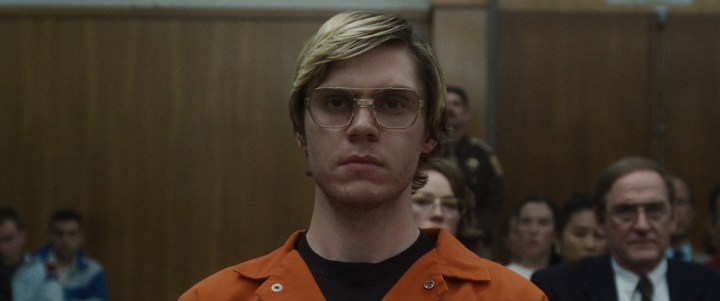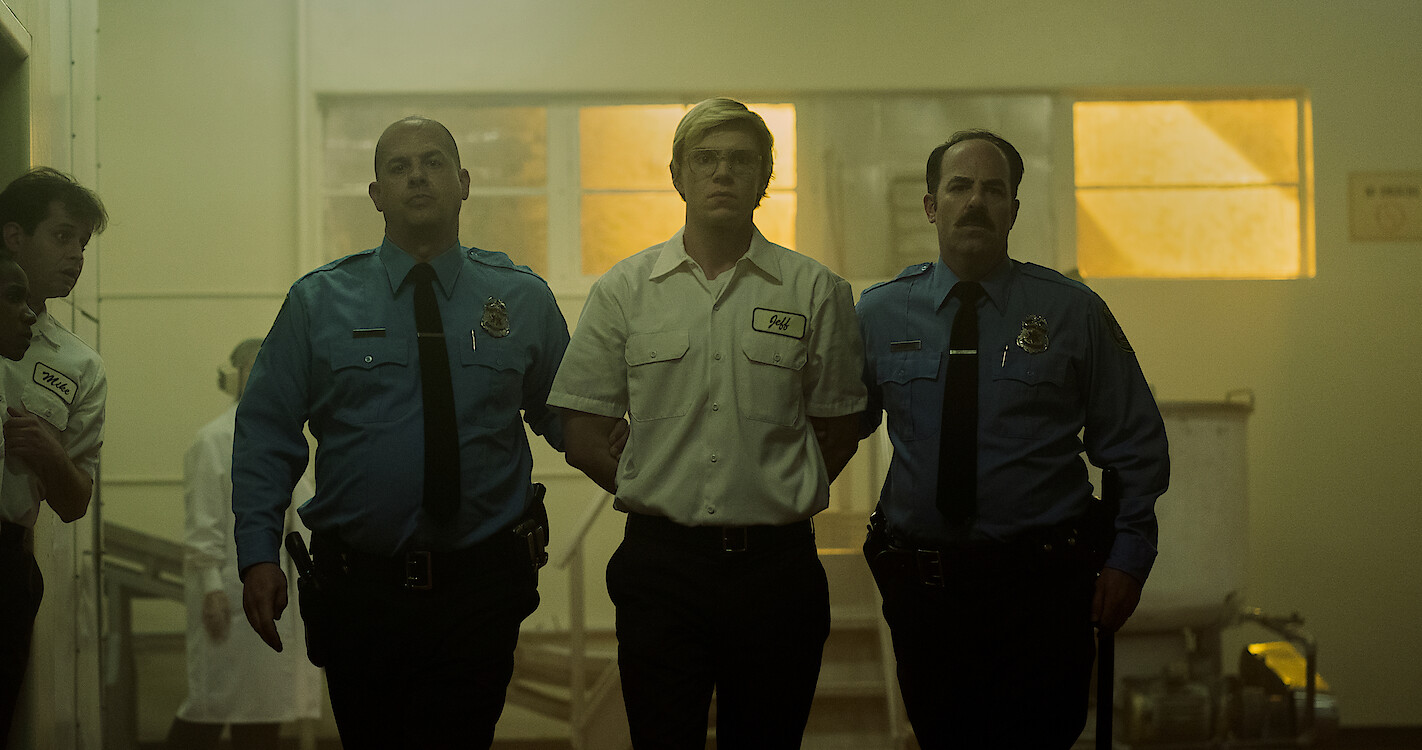THE CONVERSATION
‘They’re making money off tragedy’ – Netflix’s Dahmer series unmasks the dangers of fictionalising real horrors

Criticism has been levelled at Netflix’s drama series about the serial killer Jeffrey Dahmer, including from his victims' families, who say they were never approached about the show’s release.
Netflix’s recent series Monster: The Jeffrey Dahmer Story has stirred controversy over its apparent glamorisation of a serial killer and perceived insensitivity towards the families of Dahmer’s victims.
In contrast to more journalistic true crime entertainment (which has its own issues), the dramatisation and fictionalisation of real-life crimes, such as Dahmer, has drawn a wave of criticism for re-traumatising victims and their loved ones, and glorifying criminals.
Artistic licence or sensationalist schlock?
Whether presenting itself as an accurate retelling or merely “inspired by true events” – there is always going to be some artistic licence when transforming a complex true crime story into a movie or TV series.
While changes from real life to screen are often relatively minor, such as having multiple police officers represented by one fictionalised detective, others can significantly misrepresent events.
Anne Schwartz, the journalist who broke the original Dahmer story, has called the recent Dahmer Netflix series “not a helpful representation”. In an interview with the Independent, Schwartz criticised the caricatured depiction of law enforcement in the series. She also took aim at key plot elements, such as having key witness Glenda Cleveland (played by Niecy Nash) live next door to Dahmer, rather than in the building next door (as in real life).
Other dramatisations of real-life crimes have gone much further, adding sensationalist – and even downright supernatural – elements to true events.
The Haunting of Sharon Tate, written and directed by Daniel Farrands and released in 2019, was universally panned by critics and audiences alike for graphically depicting the real-life murder of actress Sharon Tate by the Manson family.
In the film, Tate (played by Hilary Duff) has apparent premonitions of her murder in her dreams, with the film ending with a meeting of Manson’s victims in the afterlife. Film critic Owen Gleiberman called the film “pure, unadulterated cheeseball exploitation” opining that it “goes out of its way to turn the Manson murders into schlock horror”.
Re-traumatising victims and their families
Victims of crime and their loved ones are frequently angered and re-traumatised when their real-life stories become fodder for public consumption.
The families of homicide victims are particularly disadvantaged when encountering inaccurate or insulting depictions of their loved ones, given legal protections of reputation, such as claims in defamation, don’t apply if the person defamed is deceased.
Some of the families of Dahmer’s victims have expressed outrage at the Netflix series, noting that they were never approached about the show’s release. Rital Isbell, whose brother was murdered by Dahmer, had her heart-breaking victim impact statement dramatised in the series without her knowledge or consent. She called the series “harsh and careless” in a piece in Insider expressing that “It’s sad that they’re just making money off of this tragedy”.

A still from ‘Monster: The Jeffrey Dahmer Story’. Image: Ser Baffo / Netflix
The question of who benefits from depictions of real-life crimes is an important one, with large studios and streaming platforms earning millions while victims and their families are often left to bear the consequences of increased public attention.
Australian films haven’t been immune to this tension between artistic freedom and the wishes of victims’ families. The 1997 Australian film Blackrock, directed by Steven Vidler and adapted from a play by Nick Enright was clearly inspired by (although denied by Enright) the real-life rape and murder of 14-year-old schoolgirl Leigh Leigh in 1987. Leigh’s family was highly critical upon the film’s release finding the depiction exploitative and accusing the filmmakers of “feasting on an unfortunate situation”.
Making celebrities out of serial killers
The rise of online “fandoms” surrounding real-life killers is an increasingly documented phenomena likely tied to the increased pop culturalisation of true crime.
Social media site Tumblr has a variety of dedicated fan accounts for history’s monsters, with everyone from serial killer Richard Ramirez to school shooters Eric Harris and Dylan Klebold getting special treatment.
Researcher Andrew Rico sees such fandoms as partially motivated by an urge to shock and scandalise the public, but notes they also indicate the tabloid depiction of criminals such as school shooters has led to a form of dark celebrity. This is supported by the work of doctoral student Sasha Artamonova, who views dark fandoms as a kind of “counter-culture” movement rallying against moral norms.

Evan Peters attends the 27th Annual Critics Choice Awards at Fairmont Century Plaza on 13 March 2022 in Los Angeles, California. Image: Matt Winkelmeyer / Getty Images
The Dahmer Netflix series has received criticism for casting Evan Peters as Jeffery Dahmer, given his status as a teen heartthrob who rose to fame in creator Ryan Murphy’s far more lighthearted horror series American Horror Story. The Gen Z-populated TikTok is full of fan videos of his depiction of Dahmer. Similar criticism was levelled at another Netflix series Extremely Wicked, Shockingly Evil and Vile which cast Highschool Musical star Zac Efron as serial rapist and murderer Ted Bundy.
An unhealthy obsession with serial killers is, of course, nothing new – Jeffery Dahmer received many positive letters and even marriage proposals while incarcerated.
However, some worry the recent trend of casting attractive celebrities as serial killers could have flow-on effects. One writer in Odyssey noted that “young and impressionable youth of today might find themselves empathising with and falling for people who are actually dangerous”.
Whether such concerns are prescient or a textbook example of moral panic remains to be seen.
Ultimately, there will always be an audience for stories of the murderous and macabre, with fascination in the darker side of life an incredibly common human impulse. DM/ML
This story was first published in The Conversation.
Michele Ruyters is Associate Dean in Criminology and Justice Studies at RMIT University. Greg Stratton is a lecturer in Criminology and Justice Studies at RMIT University. Jarryd Bartle is an associate lecturer at RMIT University.
In case you missed it, also read The Woman King – bringing empowering black histories to Hollywood
The Woman King – bringing empowering black histories to Hollywood
Visit Daily Maverick’s home page for more news, analysis and investigations



















 Become an Insider
Become an Insider
Well basically change the name “Dahmer” to “ANC” and we have the same scenario. Media profiting from the Evils of the ANC. I argue the ANC is far worse than Dahmer.